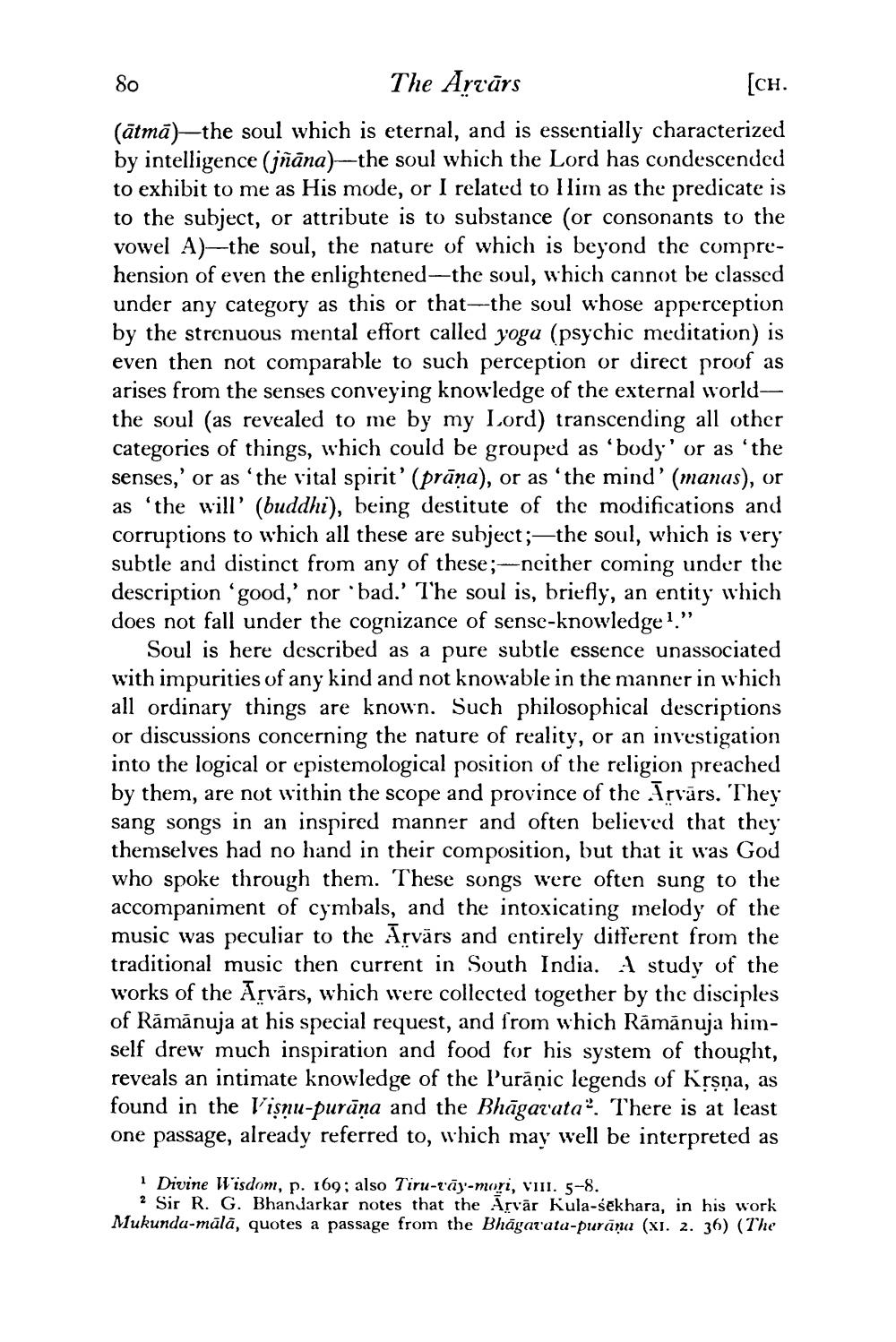________________
The Arvars
[CH.
(ātmā)—the soul which is eternal, and is essentially characterized by intelligence (jñāna)—the soul which the Lord has condescended to exhibit to me as His mode, or I related to Him as the predicate is to the subject, or attribute is to substance (or consonants to the vowel A)—the soul, the nature of which is beyond the comprehension of even the enlightened-the soul, which cannot be classed under any category as this or that--the soul whose apperception by the strenuous mental effort called yoga (psychic meditation) is even then not comparable to such perception or direct proof as arises from the senses conveying knowledge of the external worldthe soul (as revealed to me by my Lord) transcending all other categories of things, which could be grouped as 'body' or as 'the senses,' or as 'the vital spirit' (prāṇa), or as 'the mind' (manas), or as 'the will' (buddhi), being destitute of the modifications and corruptions to which all these are subject; the soul, which is very subtle and distinct from any of these;-neither coming under the description 'good,' nor 'bad.' The soul is, briefly, an entity which does not fall under the cognizance of sense-knowledge1."
80
Soul is here described as a pure subtle essence unassociated with impurities of any kind and not knowable in the manner in which all ordinary things are known. Such philosophical descriptions or discussions concerning the nature of reality, or an investigation into the logical or epistemological position of the religion preached by them, are not within the scope and province of the Arvars. They sang songs in an inspired manner and often believed that they themselves had no hand in their composition, but that it was God who spoke through them. These songs were often sung to the accompaniment of cymbals, and the intoxicating melody of the music was peculiar to the Arvärs and entirely different from the traditional music then current in South India. A study of the works of the Arvars, which were collected together by the disciples of Rāmānuja at his special request, and from which Ramanuja himself drew much inspiration and food for his system of thought, reveals an intimate knowledge of the P'uranic legends of Kṛṣṇa, as found in the l'isnu-purana and the Bhagavata". There is at least one passage, already referred to, which may well be interpreted as
1 Divine Wisdom, p. 169; also Tiru-vay-mori, VIII. 5-8.
2 Sir R. G. Bhandarkar notes that the Arvar Kula-sekhara, in his work Mukunda-mālā, quotes a passage from the Bhāgavata-purāņa (XI. 2. 36) (The




